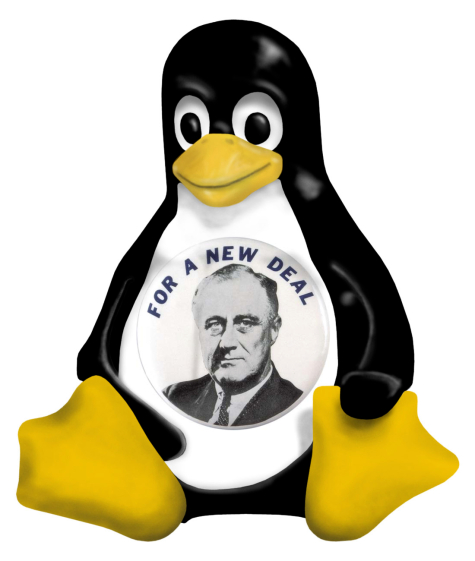Forget the damn Linux netbooks. Can Windows replace Windows?


My esteemed ZDNet colleague Ed Bott, God bless him, wrote a very insightful piece in which he discusses Taiwanese PC mainboard and component manufacturer MSI’s challenges of selling Linux-based versions of their netbook, the Wind U90. Apparently, according to MSI, Linux-based versions of their netbook are returned at a rate of four to one compared to Windows-based versions of the same model.
Click on the "Read the rest of this entry" link below for more.
Now, I don’t have much experience with the Wind. In fact, I’ve never seen one in the wild, and I work with a lot of geeks and jet-setters that own netbooks as secondary computing devices. Guess what? Most of them are Asus Eee PCs running on the built-in and netbook tweaked version of Xandros, which is a highly Windows-like and newbie-friendly Linux distribution, unlike the SuSE Linux installed on the U90. And believe me, I’m a big time OpenSuSE fan, as our own Community, Incorporated blogger and Mr. SuSE Joe Brockmeier can attest – but at this stage in the distro’s development I think it’s about as suitable for netbooks as Solaris 10 is as an embedded OS for DVRs or smart phones (read as “not suitable”). MSI needs to think about doing a better job with tweaking their end-user experience on these devices if they are having all these Linux netbook return problems. It’s not a “Linux user acceptance” problem. The product as it is currently marketed and implemented obviously needs some work.Saying that the Linux version of the Wind U90 gets returned more frequently than its Windows counterpart when ignoring the highly successful sales figures of the Linux-based Asus Eee PC is sort of like saying the Microsoft Zune is the second-best selling portable digital music player while ignoring the fact that the Apple sells like what, like a hundred times or a thousand times more more iPods? What is this, a freakin’ Presidential debate when we conveniently leave critical facts out in order to support a highly flawed ideological position?
Look, lets forget the damn Linux netbooks for a moment and concentrate on the more important issues – What is going to be the best and most value-added choice for an end-user OS going into the next decade, accepting the fact that all of us are going to be tightening our belts at least for the next several years? If we could all afford to spend twice as much on hardware and were willing to put up with all the proprietary and platform-restrictive gotchas that go along with the Macintosh, I’d say the answer should probably be Mac OS X. But we can’t all afford to buy Macs, and we certainly can’t all afford to buy new software licenses every time Microsoft spins a new version of Windows. If Windows Vista’s “success” is any indication, I have my doubts if the next version of “Windows” can replace Windows, let alone Linux.
The big question: Can Linux replace Windows? Well, ask the Atlanta Public School district, which is deploying 25,000 Linux thin-client terminals in its classrooms as a result of a successful pilot of 2200 Linux terminals in 7 schools. Ask companies like Ndiyo who have successfully deployed pilots in 3rd-world countries in educational environments and Internet cafes. Ask the Ubuntu project which can genuinely claim millions of downloads of its free end-user OS.
Is there a learning curve? Yes. Will Linux take some getting used to? Absolutely. But when faced with the choice of adding several hundred to a thousand dollars worth of TCO on the top of a PC versus getting virtually all of their equivalent key functionality for free, especially in this new austerity budget economy, I think people will be a bit more motivated to adapt to change.
Will the economy force end-users to reconsider their OS acceptance thresholds? Does Linux suddenly start to taste better when times are tough? Talk Back and let me know.